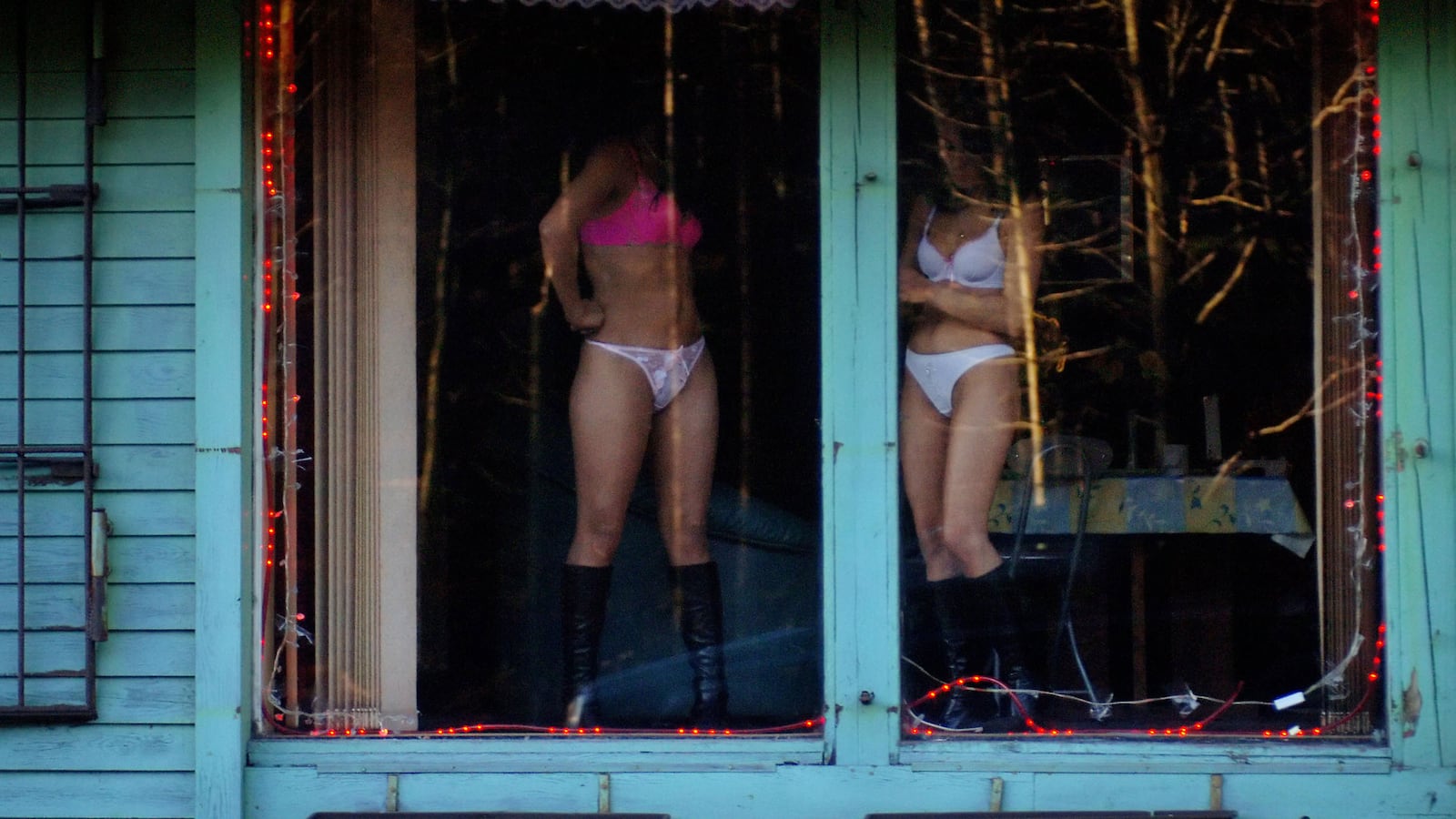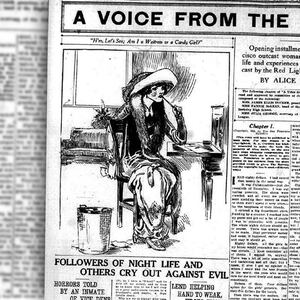On June 2, 1975, hundreds and then thousands of people, mostly women, many of them sex workers, began occupying churches all over France. They started in the Church of Saint-Nizier in Lyon with the full-throated support of Father Louis Blanc, who was quoted at the time saying, “It is, after all, Mary Magdalene to whom Jesus appeared.” From that day on, June 2 was marked as International Whores’ Day.
Whore is a word that is older than writing. It’s been associated with the illicit erotic for millennia, but it comes from older words that mean, “one who desires,” or, “woman who knows.”
Those occupying churches in France came to protest police brutality and their evictions from the places where they worked and lived. They hung a banner outside the church that read, “Our children do not want their mothers in jail.” Feminists like Simone de Beauvoir joined them in solidarity, recognizing whorephobia as a violent extension of patriarchal control, and an effective tool for pressing women out of public spaces. The occupation sparked an international sex worker rights movement that continues today.
Sex workers all over the world organized and began pressing their governments to listen to them and to stop the arrests. Ten years later, in 1985, over a hundred sex workers met in Amsterdam for the first of two World Whores Congresses. They called for the full decriminalization of prostitution.
By 2003 New Zealand decriminalized sex work as part of a public health initiative led by sex workers. That same year in the U.S., Rhode Island stopped arresting people for indoor prostitution and practicing massage without a license, publicly decriminalizing discreet sex work in the state. The results in both places on opposite sides of the world have been persuasive, positive, and well-documented, and, by 2016 Amnesty International endorsed the full decriminalization of sex work as a human rights issue.
But in the United States sex workers have fewer rights today that we did in 2003, or 1975. In April 2018, Donald Trump signed SESTA/FOSTA into law. The Stop Enabling Sex Trafficking/Fight Online Sex Trafficking Act shuttered sites like Rentboy, Craigslist Erotic Services, and Backpage ostensibly in the name of fighting child sex trafficking. Over night, the places where adult sex workers scheduled and screened their clients disappeared. The results were violent and fast: more arrests, more attacks, people doing more for less and still losing their homes.
In response, on International Whores’ Day of that year, I attended the largest gathering of sex workers in over one hundred years in New York’s Washington Square Park. We gathered, and we schemed, and we organized to fight back against local and national attacks on our trade. Generations of maligned whores have been fighting for decades to be heard and we will continue to gather to reclaim our history and fight for our future.
Today elected officials at every level of government are starting to listen. Vice President Kamala Harris has admitted that prostitution is not a problem we can arrest our way out of. In April 2021, Manhattan’s DA announced they will no longer be prosecuting prostitution arrests, and Rhode Island, Louisiana, D.C., New Hampshire, Vermont, Nevada, California, Washington, Oregon, and Florida all have increasingly visible and effective sex worker rights advocates regularly lobbying their elected officials.
Whores are part of a very long history. June 2 is not marked by many and the occupation of St.-Nizier has been forgotten by most. But sex workers and our allies have kept these memories alive, translating and preserving the international headlines, documentaries, and books that have and continue to be written for each other across generations. Now is the moment in history when we can be heard.







